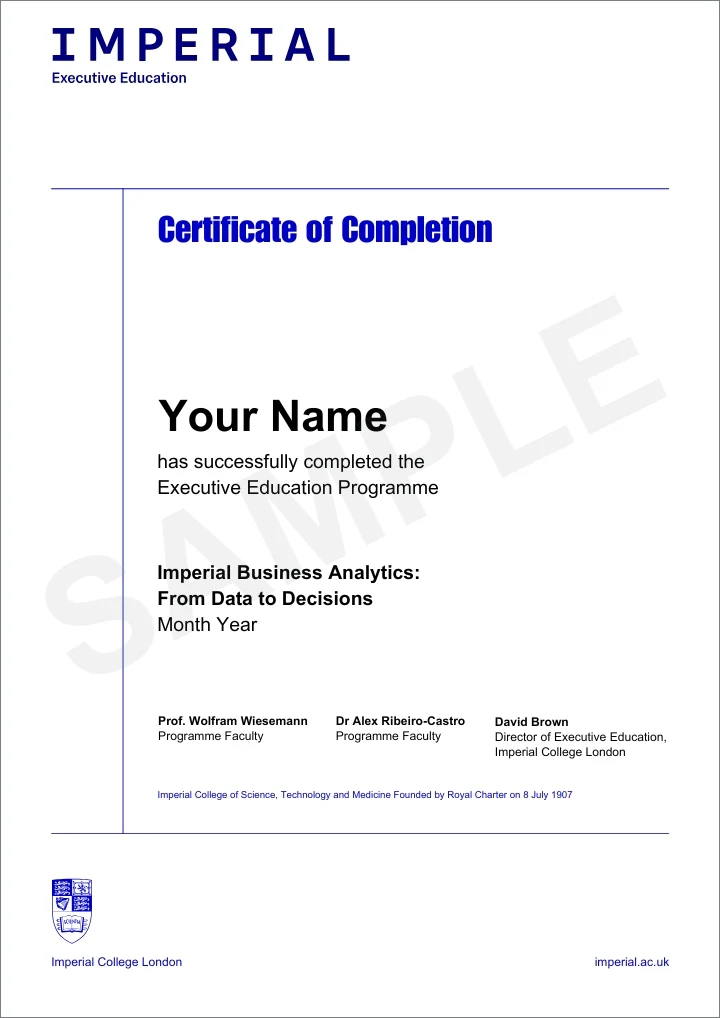Imperial Business Analytics: From Data to Decisions
Who is this programme for?
This international programme is designed for experienced professionals, including:
Technical managers implementing analytics in their function or organisation
Professionals seeking to enter into the field of analytics & data science
Mid-to-senior functional managers looking to improve their decision making using data
Consultants aiming to develop their knowledge of business analytics
The programme’s content and lessons are applicable across industries, including: banking and financial services, IT, healthcare, consulting, advertising, education, fast moving consumer goods, retail, and telecommunications.
Participant testimonials
Drive business decisions with

Meet the faculty

Professor of Analytics and Operations; Head of the Analytics, Marketing and Operations Department; Fellow, Imperial Business Analytics Centre Operations Management Department, Imperial College London
Wolfram Wiesemann is a professor of analytics and operations as well as the head of the Analytics, Marketing and Operations department at Imperial College Business School. In ...

Data Scientist
Alex holds an advisory position linked to the Business Analytics MSc and is an occasional guest lecturer for Executive Education. He also works as a quantitative analyst for t...
What you will learn

Certificate
Upon completion of the programme, participants will be awarded a verified Digital Certificate by Imperial Executive Education.
Please note that this programme contributes to earning Associate Alumni status. Visit the Associate Alumni page to find out more.
FAQs
Didn't find what you were looking for? Write to us at learner.success@emeritus.org or Schedule a call with one of our Programme Advisers or call us at +44 208 629 1765 (UK) / +1 315 509 2976 (US) / +65 3138 2451 (SG)
Early registrations are encouraged.
Flexible payment options available.
Starts On












